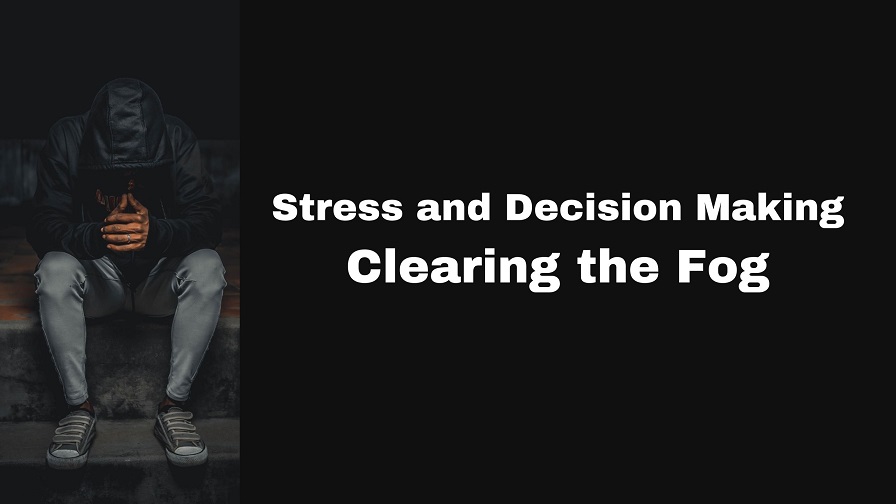Stress and Decision Making: Clearing the Fog
Decision-making is a fundamental aspect of life, encompassing big and small choices. However, decision-making can become challenging and overwhelming when stress enters the equation.
Stress can cloud judgment, hinder rational thinking, and impact the quality of our decisions. Understanding the relationship between stress and decision-making is essential for making informed choices despite challenging circumstances.
This post delves into the impact of stress on decision-making and offers strategies to help clear the fog and make effective choices.
The Influence of Stress on Decision-Making
Cognitive Impairment: Stress triggers the release of stress hormones, impairing cognitive functions such as memory, attention, and reasoning.
Emotional Bias: High stress levels can lead to heightened emotions that influence decision-making, often leading to impulsive or irrational choices.
Short-Term Focus: Stress tends to narrow focus, making individuals more likely to prioritize short-term solutions rather than considering long-term consequences.
Risk Aversion or Seeking: Stress can cause risk aversion, making individuals overly cautious or pushing them to seek high-risk behaviors as a coping mechanism.
Strategies for Effective Decision-Making Under Stress
Recognize Stress
Be mindful of your stress levels. Recognize when stress influences your decision-making process, and take a moment to acknowledge and manage it.
Practice Mindfulness
Engage in mindfulness techniques to stay present and centered. Mindfulness reduces the impact of stress on your thoughts and emotions.
Give Yourself Time
When possible, postpone making major decisions during times of high stress. Allow yourself time to calm down and gain a clearer perspective.
Utilize a Decision-Making Framework
Adopt decision-making frameworks, such as weighing pros and cons or listing potential outcomes. These methods help structure your thinking.
Seek Perspective
Consult with trusted friends, family, or colleagues to gain an outside perspective. Fresh viewpoints can offer clarity and balance to your decision-making.
Journaling
Write down your thoughts & feelings related to the decision. Journaling can help you process emotions and gain insight into the best action.
Prioritize Self-Care
Engage in self-care activities that reduce stress, such as exercise, meditation, or leisure time. A calm mind facilitates clearer decision-making.
Break Down Decisions
Divide complex decisions into smaller components. This approach allows you to tackle each aspect systematically, reducing overwhelming feelings.
Visualize Outcomes
Imagine the potential outcomes of your decisions. Visualization can provide insight into the potential consequences, helping you make a more informed choice.
Sleep on It
If possible, give yourself a night’s sleep before making a significant decision. Rest can provide clarity and a fresh perspective.
Conclusion
Stress has the potential to cloud judgment and impact the quality of our decision-making. Adopting strategies to recognize stress, manage emotions, and gain a clearer perspective allows you to navigate decision-making even amid stress.
Remember that effective decision-making is a skill that can be honed over time. By practicing mindfulness, seeking support, and prioritizing self-care, you can increase your resilience in the face of stress and ensure that your choices align with your long-term goals and well-being.
Thanks for visiting How To Cure Stress

